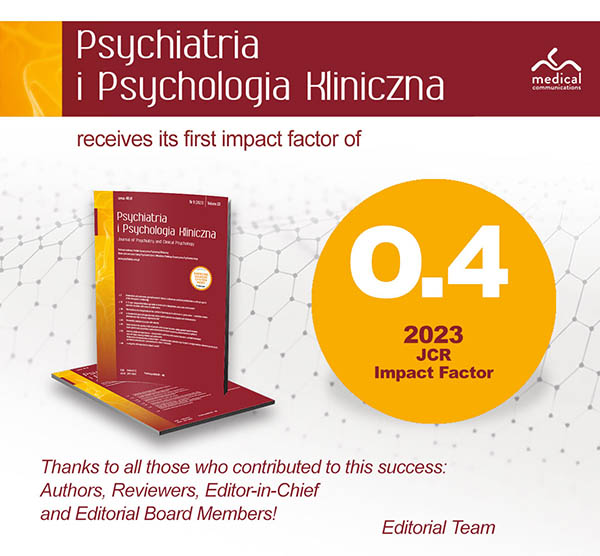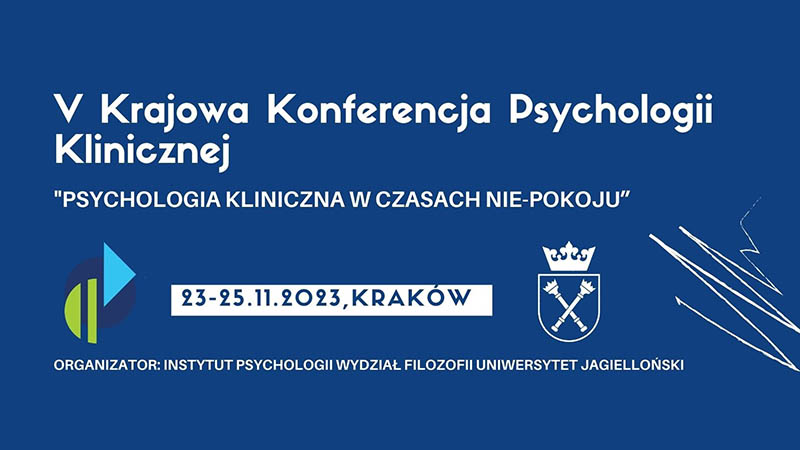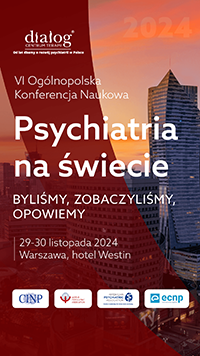Mental state, body image disturbances and social competences in adolescents with strabismus
Cecylia Smug, Tomasz Pawełczyk, Agnieszka Pawełczyk, Jolanta Rabe-Jabłońska
 Affiliacja i adres do korespondencji
Affiliacja i adres do korespondencjiIntroduction: Strabismus is a serious ophthalmological and cosmetic disorder which may cause psychological discomfort. An increased incidence of various mental disturbances in patients with squint has been described. Affected children and adolescents experience more difficulties at school and worse results in sport. Squint may cause a disadvantageous social reception and may sometimes make it difficult to get a satisfying job. It may considerably decrease the quality of life. Objective: This study addressed three questions: 1) Is strabismus linked to psychiatric and psychological disorders? 2) Can it influence social competences? 3) Is it linked to dysmorphophobia (DSM-IV)? Material and methods: Thirty persons with strabismus at the age of 13-17 years were compared with the control group of 30 persons of the same age, rozmowithout eye problems. To detect psychiatric problems GHQ-28 scale was used. To assess social competences the Social Competence Questionnaire KKS (Kwestionariusz Kompetencji Społecznych) was used. Dysmorphophobia symptoms were measured using the Body Dysmorphic Disorder Examination (BDDE). Results: There were no statistically significant differences in the incidence of symptoms of depression, anxiety, sleep disorders, functioning, social competences or dysmorphophobia in adolescents with strabismus, as compared to the control group. Significantly worse social competences were shown by those adolescents with strabismus who underwent surgical treatment, as compared to other persons with squint (p=0.006). Discussion: In literature, we have not found any studies on social competences in young people with strabismus. The prevalence of dysmorphophobia was not confirmed among them. No higher incidence of psychiatric disorders was observed in our study in adolescents with strabismus.















